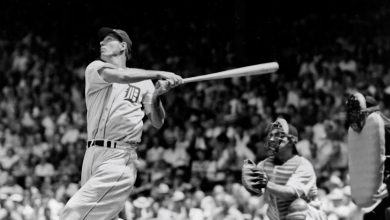Fan reviews and parodies of Amazon’s The Rings of Power show that ownership is not just determined by contracts

مجلة المذنب نت متابعات عالمية:
The fan reaction to season one of The Rings of Power in 2022 was, to put it mildly, very mixed. Following the 2017 announcement that Amazon had bought the rights to adapt some of J.R.R Tolkien’s lesser-known work, many fans were cautious in their celebration.
I research fandoms, so I am particularly drawn to the levels of critical analysis and humour fans employ in their review videos and parodies of The Rings of Power. They highlight that while multi-billion-dollar corporations may have the financial clout to own valuable IP and some of the biggest entertainment franchises, ownership is not just determined by contracts.
Peter Jackson’s The Lord of the Rings trilogy (2001-2003) stands as testament to the director’s passion for Tolkien, Middle Earth and cinematic storytelling.
With The Rings of Power, Amazon was clearly trying to capture some of that for the small screen. They hoped to use the franchise to compete with other streaming platforms such as Netflix and Disney+, as well as copy HBO’s success with series like Game of Thrones. Epic fantasy television offered Amazon the potential for new subscribers, awards and priceless word-of-mouth marketing.
However, that is not quite what happened. Early promotion for season one was scarce, the teaser trailer was ratioed (meaning it had thousands more dislikes than likes) and a campaign to use social media influencers and vloggers as promoters backfired.
When marketing backfires
Amazon flew a number of social media influencers and vloggers to Mallorca in Spain to watch the first teaser trailer, and then filmed their praise and reactions to be shared on their channels and Amazon’s own social media.
But fans quickly spotted that a number of the influencers and vloggers had never made Lord of the Rings content before and most of the reactions were scripted, depending on language and nationality of the vloggers. When these promos started to be ratioed on YouTube, Amazon took them down.
Now with season two upon us, the lack of faith in Amazon’s adaptation has not only continued – it has noticeably grown. Some content creators have reacted negatively to the company’s and showrunners’ attempts at turning the very small amount of the story and lore, to which they have rights, into many hours worth of television.
Yet, it is how the fans respond which is often more intriguing and revealing than what they are responding to. The overall tone and argument that fans share about the series is that it lacks faithfulness to Tolkien’s world and tries to adapt and copy Jackson’s version of Middle Earth, rather than create something appealing in its own right.
This is best highlighted in recent videos produced by well-known and controversial Lord Of The Rings fan, Nerdrotic, who outlines in enormous detail how season two has gone further in trying to sound and look like Jackson’s movies.
The use of clips, dialogue, sound effects and references to press sources raises such content to almost academic level of critique. His cultural capital and knowledge of the story and lore is clearly displayed, and used to both raise the source material up while he puts the Amazon adaptation down.
This is typical of fans who feel their beloved text is under attack – they come to its defence by building a case for its original quality and value.
Fan parodies
The use of parody and humour to pour scorn on the series is also a common practice among fans. New digital technologies like artificial intelligence (AI) allow fans to create a sense of realism that again demonstrates their knowledge and love of the original works.
Charlie Hopkinson’s Gandalf Reviews deepfake sketches have found an audience that both knows the lore but is also familiar with and enjoys the format of reaction videos made popular on YouTube. Setting Gandalf in a sitcom where he chats with other characters while watching Lord of the Rings may seem glaringly unfaithful to the material, but it uses displacement of those same characters to highlight the importance and value of the original story and movies.
Fans develop a strong sense of ownership over their favourite media or books. They have taken fantasy, science fiction, comic book and horror franchises to their heart and put time, money and energy into getting to know them in every detail.
Because of the level of financial and personal investment, they feel they “own” the text and have helped make it popular in the first place. Therefore, they would argue they have every right to feel threatened, angry or frustrated at what they perceive as harm being done to it and so, by extension, them.
Streaming platforms such as Amazon have tried to stay ahead in an increasingly competitive market by mining well-known IP to lure in fans and non-subscribers alike. However, as The Rings of Power has shown, attempts at courting fans can come at a cost which may never be recouped.
The relationship between fans and entertainment corporations is as fraught as ever. Amazon needs Tolkien fans, but at the same time doesn’t seem to recognise the fact that the fans may not need them – or another adaption – to keep them entertained. They can do that for themselves.
Looking for something good? Cut through the noise with a carefully curated selection of the latest releases, live events and exhibitions, straight to your inbox every fortnight, on Fridays. Sign up here.
نشكركم على قراءة المنشور عبر مجلة المذنب نت, المتخصصة في التداول والعملات الرقمية والمشفرة














